|
Ski Season!
If you read this blog, you should know that I am an avid skier. It is a fantastic activity and enjoy it even more now that my small children can enjoy it with me. For those of you that have been skiing, you know that the accommodations during the ski months are astronomically expensive. Most locations have a fairly short season so to make their money for the year, they increase room rates appropriately. For nice accommodations, it is not unheard of to spend over $500 per night for a basic hotel room! Upcoming Ski Season For this upcoming season, I currently have three weeks booked in Park City, Utah. All three are booked using timeshares. One of the best uses of timeshares can simply be to use them for ski weeks. Costs The reason why it is great to use timeshares for ski weeks is because the out of pocket costs for a ski week can be prohibitively expensive. Doing a quick couple of random searches for a ski week this winter in Park City, Vail, Beaver Creek and Breckenridge all brought up rates ranging from $300-$700 per night. Therefore, a week rental in a hotel room will easily cost $2,100-$5,000, not even factoring in the ridiculous resort fees that all nice accommodations now require despite not providing any real value. Easy Strategy A lot of the timeshare deals and strategies that I discuss on this blog may require a couple of hoops to jump through in order to maximize timeshare ownership. If you want to maximize ownership, you generally need to do some things which are not as easy as just booking a hotel room with cash or being flexible with your plans. Many times, people do not have the time, energy or patience to learn these techniques. I can understand this which is why using a timeshare for ski travel can be a simple strategy and a huge economic win. Since hotel accommodations are so expensive during ski season, if you can exchange your timeshare for a ski week, it not only will make tremendous economic sense but it could be the difference between actually taking a ski vacation or not. Spending $2000-$5000 on hotel accommodations plus car rentals, ski rentals, food, lift tickets, etc. can easily surpass $10,000 for a week vacation. While I love skiing, I simply will never spend that type of money for a week vacation Exchanging into Ski Weeks Luckily, timeshares are quite abundant in ski destinations. Many people who have been accustomed to spending $10,000 per week tend to jump at the chance at purchasing week and "locking-in" their cost for the next 10+ years. Instead of paying $10,000 each year, they pay a one time fee and probably around $1,500 per year as maintenance fees per week. Depending on your spending history, it may make sense to buy a ski week. However, if you are flexible, I find that the best way to get ski weeks is through exchanging a timeshare with low maintenance fees. Since there are tons of high quality timeshares in ski destinations around the world, if you plan far enough ahead, you can likely grab very high quality resorts for a fraction of the retail cost for a week. Destinations with Timeshares Here are a few destinations that have plenty of high quality, luxurious timeshares (Hyatt's, Marriott's, Westgate's, Wyndham's, and others): Breckenridge, Colorado Park City, Utah Beaver Creek, Colorado Lake Tahoe, California Vail, Colorado Stowe, Vermont Aspen, Colorado Steamboat Springs, Colorado Easy Win If you are the type of person who simply does not have the time, energy or patience in trying to maximize timeshare ownership, a simply strategy can be to own a timeshare in any part of the world and use it to exchange into ski destinations. Even if you own a timeshare and the maintenance fees cost you about $1,500 per year, exchanging your one week for one week in a ski destination during ski season can easily make financial sense and save you money versus paying cash for a hotel room during ski season. For example, I have already booked a ski week at the Marriott Summit Watch hotel in Park City for December 15-22, 2017. If I was paying cash, it would cost me $3,112.80 for these seven nights. Astronomical if you ask me. Instead, I exchanged a portion of my Hyatt points and exchanged into this exact week for a fraction of the cost. Here is my out of pocket breakdown: I pay about $1250 for 2,000 Hyatt points. I used 430 Hyatt points for this week stay. Therefore, it cost me about $270 in Hyatt points plus another $189 for the exchange fee for Interval International. My total out of pocket cost is $459 for the week instead of over $3,000 - a savings of over 85%. AWESOME! Using Hotel Points Another great strategy for ski hotels is through hotel loyalty points. Hotel loyalty points can be a great way to get outsize value out of your points. The difficulty in using them for ski destinations is availability. A lot of programs may block out certain dates so you need to plan ahead. The second issue is that even if you can get a hotel room, you will not likely be able to use your points to get suites, 1 or 2 bedroom units or larger accommodations. Even if they are available, the amount of points for anything larger than a hotel room is generally cost/point prohibitive. Conclusion Ski trips are ridiculous expensive and the price of accommodations alone may prevent you from taking these types of trips. Fortunately, high quality, luxurious timeshare accommodations are abundant in many top notch ski destinations. Simply exchanging your timeshare for a ski week can make tremendous financial sense and allow you to take one or more ski trips that normally would simply be too expensive otherwise. I find that using my timeshare solely for ski trips makes tremendous financial sense and find that it is one of the easiest and best use of timeshares. I simply wouldn't be able to visit some of these spectacular ski destinations without the use of timeshares. What do you think? What trips to you have planned for this ski season? Do you have a favorite ski destination timeshare? Make sure to comment below!
Introduction
Timeshare ownership may not be for everyone but for many, owning a timeshare can open up new destinations and provide you with spacious accommodations for much less than the cost of renting hotels or even through Airbnb. There are so many negative views on timeshares that most people simply shut down the thought of ever buying one since their reputations are so horrendous. Despite many issues, my view is that if you understand timeshares and understand how to maximize their use, they can be very worthwhile. Using Points The older timeshare systems generally had people buying week intervals for use at that resort year after year. Over time, exchanging became popular where you could exchange that week into other weeks at other destinations. As the system progressed, many timeshares evolved into points based systems where owners purchase points or get allocated a certain amount of points based on their owned week which can be exchanged into a certain amount of nights stays at resorts. Today, most timeshare systems have evolved into points based systems. Timeshare systems are actually quite familiar to hotel, airlines, or credit card loyalty programs. Instead of earning points through stays or credit card spent, you purchase your timeshare points or your timeshare week. Once you have the points, you can use them in various different ways. Like loyalty programs, you can use them for top tier properties or spread out your points for staying at lower quality properties. Unlike hotels, generally speaking, timeshare points systems do not vary based on the quality of the resort. Timeshares are not based into categories or tier levels but rather use seasons or time periods to change the amount of points necessary. For lower demand periods, less points are required whereas in high season, more points are required. Hyatt Sweet Spots In other posts, I explained some portion of the Hyatt system. While the Hyatt system is undergoing a switch to an all points system, their existing system for owners will remain in place. For the purpose of this post, I will discuss the current system. Here is the exchange chart for Hyatt: As you can see, the amount of points are based on the season, size of unit and amount of nights. The choices are 2, 3, 4 or 7 nights. While this chart may be a little daunting, if you do some math you can see that there can be tremendous value in using points for 2 or 4 nights. These 2 or 4 nights stays are midweek stays so they must be either a Sunday and Monday night, Tuesday and Wednesday night or a Thursday and Friday night. The 4-night stays are Sunday through Thursday or Monday through Friday. For example, if we take a 1-bedroom week during Diamond season, it would cost 1,450 points per week. Per night, this is approximately 207 points. If you elect to use 2 nights during Diamond season, this would only cost you 145 points per night. If you elect to use 4 nights during Diamond seasons, this would also cost you 145 points per night. This results in a 30% discount on the amount of points – not too shabby. Basically, if you owned a 1-bedroom week worth 1,450 points, you could either use it for a one week stay for all 1,450 points or you can use it for two 4-night packages and one 2 night package and receive a total of 10 nights instead of 7. Hyatt Mountain Season I have mentioned mountain season before but it should be mentioned again since it is such a tremendous deal. Mountain season is for the ski properties in Aspen, Avon, Beaver Creek, Breckenridge and Park City. Mountain season occurs during the absolute lowest time as it is between seasons but the amount of points to stay in these properties is absolutely miniscule. For an entire week in a 1 bedroom unit is only 130 points – about 18 points per night. Therefore, if you owned the 1 bedroom above, you can literally stay in a 1 bedroom unit for 11 weeks for the same amount of points. Here is a post on this subject for those of you interested. Marriott Sweet Spots Unlike Hyatt, Marriott has exchange charts for each individual resort. Instead of seasons, Marriott uses dates to determine the amount of points required. Unlike Hyatt, Marriott owners can reserve as little as one night. For example, here is the chart on the Marriott’s Maui Ocean Club.
As you can see, the amount of points will be based on the time of travel, the size of unit, type of view (Island View, Mountain Garden, Ocean View or Ocean Front) and the day of the week.
For example, if you have a one-bedroom island view unit for August 25 to November 15, it would require you to use 2,525 for a week. This would be about 360 points per night. Instead of using a week, during the same time frame you could reserve four nights (Sunday through Thursday) and only use 325 points per night – a savings of about 10% per night. Since each property has its own exchange chart, you need to dig through to see the various potential savings. The key is that most mid-week stays (Sunday through Thursday) are significantly cheaper in points requirements that staying a full week or during the weekend. Here is the link to the Marriott Vacation Club charts. Timeshare and Points Strategy As I have mentioned before, I am an avid fan of travel points and have tons of frequent flyer miles, hotel loyalty points and exchange credit card points. For those of you that are familiar with this, you realize that there is a tremendous value in obtaining these types of points and determining how to maximize their use. Like these types of loyalty points, timeshare points systems are similar in that there are ways to maximize them if you understand the exchange charts. As shown above, some of the easiest ways to maximize timeshare points is to use points during mid-week stays (Sunday through Thursday). Depending on the program and depending on the resort, traveling on these times can produce a significant savings on points and can turn your one week of timeshare ownership into multiple weeks of travel. Like most people, I am sure that you are thinking that while it may be cheaper, no one travels mid-week as most people would want to take advantage of two weekends so that they only have to use 5 days of vacation for a 9-day trip. The way that I use a lot of my timeshare points is to book them for a 4-night stay and use my hotel loyalty points for the weekend portions. Most hotel loyalty programs do not change the points requirements for staying over a weekend as opposed to staying on a Monday night. Therefore, in order to maximize both types of programs, I use my hotel points for weekend travel and my timeshare points for weekday travel. This can be a great way to maximize both types of programs and can be great for those types of travelers who either do not like to travel for a full week at a time or prefer to stay in different hotels / locations. My favorite way to use this strategy is for ski trips. I can book a Saturday night stay at a hotel and then book a four-night mid-week stay using timeshare points. A lot of the timeshare ski properties are ski-in / ski-out and can cost multiple hundreds of dollars per night so using timeshare points for mid-week stays can be very advantageous and literally can save me thousands of dollars. Without timeshares, most ski trips would simply be prohibitively expensive for me! Conclusion Timeshare points systems are very familiar to other popular loyalty systems and both systems, if used correctly, can really stretch the value of your points. The key is to really understand the systems and find the various sweet spots. These sweet spots described above relate to the internal exchanges but there are others when dealing with external exchanges as well. We'll cover those in later posts! What are your timeshare sweet spots? Leave your comments below!
Unbelievable Information on Timeshares
Almost every article I write, I begin by saying how controversial timeshare ownership is and what a truly horrendous reputation that timeshares have. Most timeshare owners, including myself, The Timeshare Guru, always pause before I tell someone that I own a timeshare. Most people immediately think that I have been scammed and try not to make me feel bad that I fell for a timeshare purchase. Timeshare Statistics Before I started The Timeshare Guru, I attended plenty of timeshare presentations. The sales presentation rooms are almost always filled thanks to the very generous perks that they offer to attend. In case you missed it, check out this post on Getting Free Stuff from Timeshare Presentations. I also did some research on the overall timeshare market. I knew that I really enjoyed my timeshare so I figured that there must be others. I truly could not believe the statistics on the timeshare industry. The timeshare industry has such a horrendous reputation that I couldn’t and still can’t believe these figures. Here are a few good ones that I thought I would share:
Who are Timeshare Buyers? From my previous posts, you can see tons of negative comments on timeshares. Based on my informal review, many of these comments were from people who have a negative perception of timeshares or who had a bad experience with ownership or know someone who did. Timeshares are not perfect and many people have had unfortunate experiences in the harsh reality of some aspects of timeshare information. There are definitely a lot of negative attributes of timeshares but there are also a ton of great benefits provided that you know how to maximize them. The vast majority of people think that timeshares are scams, for those people who can’t afford a true second/vacation home or those who get roped in to a purchase while on vacation. While there are plenty of disgruntled timeshare owners, there are actually a lot of timeshare owners who really enjoy their timeshare. I absolutely love our timeshares and I am currently in the process of buying even more. Here are a few statistics on timeshare buyers that I thought I would share:
My true belief is that if you understand the timeshare systems, you can definitely maximize timeshare ownership and get outsized value. As I stated in my other post, Economics of Timeshare Ownership, I can get 4+ weeks out of one timeshare week which equates to under $500 per week for very high- quality resorts (Four Seasons, Hyatt, Marriott, etc.) in quality destinations (ski weeks, Hawaii, Caribbean, Mexico, etc.). Data For those of your that are wondering, I did not make up these statistics on timeshares. The American Resort Development Association puts out various research and facts on timeshares. It is a trade association that represent developers and owners. Some statistics may be developer friendly, but ARDA is the ultimate resource for trade information on timeshares so there is little reason to doubt its accuracy or authenticity. Conclusion Timeshare ownership will likely always remain a controversial topic. My main complaint about timeshares is their sales practices. They are simply not transparent in the way that timeshare operates. They may educate owners on the general ways to use timeshares but they generally over promise on how easy it is to trade into desirable properties, the ability to travel at peak times, the requirement to plan, far, far in advance to get those prime weeks and the economic value of their timeshare. I also despise that they try to get people to make a significant financial decision based on a 2-hour sales presentation. They do not give potential customers the time to think about their purchase or research a financial commitment that can last a lifetime. I truly believe that if the sales process changed and full transparency was accomplished, the reputation of timeshares may actually change. However, based on the statistics above, it appears that these sales tactics work and I highly doubt that change will happen soon. Despite these negatives, there are almost no complaints on the quality and spaciousness of the resorts. It is very hard to vacation in a hotel after getting use to the comforts of a timeshare resort. What are your thoughts on these statistics? What is your perception of timeshares?
**PHOTO IS GRACIOUSLY PROVIDED BY DAVID NARTIN.
Message from The Timeshare Guru: This is a guest post from the Fit Well Traveler. He has previously written another article "The Benefits of Travel for Mental Health and Addiction". I definitely recommend that you check out his blog for more great articles at The Fit Well Traveler. This post is about traveling on a budget. This post provides some good information on traveling on a budget. While I definitely enjoy the finer luxuries of life, traveling does not have to cost a fortune. While I travel extensively and in nice accommodations, it rarely costs me much thanks to credit card perks, points, and timeshares. While the world may feel small, the world is actually quite big and there are many places to see. Don't let money get in the world of travel. You will be glad that you get away. Thanks again to the Fit Well Traveler for this post. Wouldn’t it be nice if money trees actually existed? Yeah, it would, but they don’t. Which means most of us have to find ways to get the most out of the activities we love while living within our financial means. One of these activities that we all love is traveling, which HealthNet explains is not only fun, but good for our mental and physical health. To reap these benefits without running up credit card debt, follow these cost-conscious tips for traveling on a budget. Consider Destinations with Built-in Beauty Activities tend to cost money, especially in tourist towns. Staring at and basking in the natural beauty that Mother Nature has humbly provided us mere mortals is often free, aside from the National Park admission fee where that applies. So, plan a trip to a place where the natural beauty is abundant, it’s the first step in a budget-conscious jaunt. For those looking to go tropical, U.S. News and World Report recommends their top 10 budget-friendly Caribbean destinations. Forbes offers their own version of the cheap destination list, basing theirs on where the dollar is a particularly strong currency. This consideration makes a huge difference in how costly a trip is or isn’t. Destinations you may not expect to be on such a list include Crete (an island off of Greece), Morocco, and Costa Rica. Seriously, a tight budget doesn’t have to mean thinking small when it comes time to consider destinations. If you want to stay in the States, Travel + Leisure offers some suggestions that provide quite the bang for your buck. Nashville is a music buff’s paradise, Charleston has a harbor scene that’s to die for, and New Orleans is the cultural and food mecca of the entire nation. You can’t go wrong with any of these travel spots. Once You’ve Chosen a Destination Picking a place to visit is only the first step in saving money while traveling. If you’re going out of the country, CNBC advises finding a credit card that doesn’t charge foreign transaction and exchange fees, a surprising fee your credit card company never bothered to tell you about. Thrillist recommends several options for traveling on a budget, some more feasible than others. You’re unlikely to track down the free commune-type living situation they recommend, and even if you did, it’s best to consider what that could look like . However, their recommendations about taking advantage of mileage points and budget airlines are prescient. Some rental properties will not only be cheaper than hotels, they’ll provide a way better experience once you’re there. From a full-sized kitchen, to the at-home feel of a rental house, it’s better than a hotel in virtually every way, as Travel Channel points out. Another tip, especially if you do find a well-priced rental, is to cook most of your meals at home. Most cities, especially ones that cater to tourists, are filled with restaurants whose prices are nothing short of exorbitant. Before heading out, make sure to secure your home. Check all doors and windows; be thorough. This will ensure that you don’t question whether you forgot to lock up while you are trying to enjoy your trip. Also, put outside lights on timers to avoid the impression that you’re gone, and let the neighbors you trust know you’ll be away so they can keep an eye out. If you aren’t bringing your pet on the trip with you, make arrangements for it to stay with a friend, family member, or professional caretaker. Conclusion Who wants to travel? There’s an easy answer to that question: Everyone wants to travel! And, with few exceptions, everyone can travel. A small paycheck shouldn’t mean a life lived in one neighborhood, city, state, or even country. Getting out and experiencing new sights, sounds, and cultures is great for our health, and it typifies what the “good life” is all about. And, most importantly, it doesn’t take a fortune to embark on an awesome expedition, whether domestic or abroad.
It appears that the world of timeshares may be getting smaller. As I previously reported here, there were some rumors concerning International Leisure Group (ILG) (the company that owns Interval International, Hyatt Residence Clubs and Vistana resorts) and Marriott Vacation Club.
At the time, the rumor was the ILG would potentially acquire Marriott Vacation Clubs. It appears that the roles have reversed and Marriott Vacation Club has apparently made an offer for ILG. Here are more details of the story here. What does this mean? I have no idea at the moment but it is definitely an interesting development. Stay tuned as more details emerge.
It would probably seem strange that you would be reading an article titled "I hate the Timeshare Industry" on The Timeshare Guru, a place meant to show readers how to maximize timeshare ownership but the fact is, the title says it all.
I continually have to do research on the in and outs of these timeshare programs in order to get the information to publish on this site. There is sparse information on the internet as the entire industry attempts to rely on the in-person sales presentation in order to close the deals. Timeshare Presentations I have sat through plenty of timeshare presentations and knowing timeshares and knowing the systems well, it always gets me extremely aggravated to hear the number of false statements or half-truths that the sales representatives say. These range from exaggerating the ease of exchanging into prime weeks to the "financial" value of the timeshare when you are done using it. Marriott Vacation Club Resale Solicitation In my latest dealings, I received an e-mail from the Marriott Vacation Club concerning resales directly from Marriott. As a quick bit of background, Marriott has two programs, its legacy week program which is the standard timeshare system of owning a week at a specific resort and its points program, where you purchase points to be able to exchange into the properties. Marriott no longer sells its weeks directly but does have a resale arm that sells these legacy weeks. Almost all third parties are selling the weeks program as there are not many resales on points since Marriott allegedly buys them back through their right of first refusal if a owner wants to sell them. One of the most material differences of purchasing through Marriott directly is the ability to convert your timeshare week into Marriott Reward Points. These functionality disappears if you purchase anywhere except Marriott. I find that the value to exchange into hotel loyalty points is generally very poor but it can make sense in limited situations. It does however give you a ton more flexibility on how you travel even if the value is poor. The solicitation that I received was for resales directly through Marriott for its legacy weeks program. I was interested to see the price for these resales as compared to other third party sites and eBay. Fortunately, they actually provide a transparent way to see the available units and the cost of these units. This can be found here: Marriott Vacation Club Resale Information If you sift through the information, you can see prices for what they offer but you cannot see the amount of maintenance fees. While the purchase price is important, maintenance fees are potentially even more important since these are the ongoing fees each year and will almost definitely increase each year. The Conversation I spoke to the Marriott representative for about 15 minutes quizzing him on the various differences between the programs and why it may make sense to purchase directly through Marriott instead of a third party. The particular representative that I received indicated that he worked for the Marriott Vacation Club for over 28 years and owned through their legacy program and their points programs. He was an expert in the Marriott Vacation Club. I continued to quiz him on various functionality and then asked him what property, in their legacy program, had the lowest maintenance fees. Generally, I use almost all of my timeshare weeks by exchanging them so the best way for me to get tremendous value out of my timeshares are to own weeks that have the lowest maintenance fees. As long as the week has a decent demand and the property is nice, they can trade very well through the programs so that I can exchange into prime weeks that would have a much higher maintenance fees. The general idea is to own a week with low maintenance fees and trade into weeks where the maintenance fees are much higher. I asked the representative and he indicated that "he does not know what property has the lowest maintenance fees" as each week and property was different. I pushed back and asked him how he does not know the answer to this question considering he worked with Marriott Vacation Club for 28 years and looks at prices and maintenance fees every single day. From this point in the conversation, he basically wanted nothing to do me and abruptly ended the conversation and wished me the best. I HATE the Timeshare Industry It appeared that once I started asking real questions and wanted to know real answers, he sensed that I was simply not a purchaser and didn't want to deal with me any longer. The truth of the situation was that I wanted to know what property had the lowest maintenance fees so that I can focus my search on those properties and see whether owning with Marriott can be worthwhile. After the conversation, I was truthfully incensed with the way that the representative handled the situation. He knew the information but didn't want to tell me the answer. He simply wanted to sell me on the "lower priced" resale inventory since they were apparently selling these for 50-75% of the original developer pricing. After this latest run in with the timeshare sales representatives, it really made me think that I HATE the timeshare industry. I love my timeshare, love the accommodations, love the value but absolutely despise the sales process. The sales process is truly atrocious as I always feel as though the sales representatives are hiding the truth or only sharing information that be used to turn their presentation into a sale. What can be done? I do not think that I am unique in my feelings as there are plenty of "owners" that really love their timeshare but hate the process. The goal of this blog is to educate readers on how timeshares work so that they can be knowledgeable on the timeshare systems and decide whether timeshare ownership can work for them and what system will work best based on their travel needs. My hope is that readers can review the information and make the decision themselves on what they want to own, the price they want to pay and where they want to purchase. If you are equipped with that knowledge, you can purchase a timeshare with ease since there is no sales pitch and you know what you want and know the pros and cons of timeshare ownership. Conclusion I really do hate the timeshare industry. The horrendous reputation is accurate for the sales process but unfortunately spills over to timeshare ownership. The sales pitches and my interactions with all timeshare representatives are generally all self serving and I rarely receive complete transparency when asking questions. I have called up a couple timeshare programs and they simply won't tell me anything over the phone as all information must be disclosed during a sales presentation. I find this to be a horrible business practice and it makes me livid that the entire industry uses this method to sell timeshares. Timeshares can be absolutely fantastic but obtaining the information and obtaining the truth can be very difficult. I hope that this blog change this issue. What have your experiences been with timeshare representatives? Leave your comments below!
Timeshare ownership may not be for everyone but renting timeshares can be a fantastic way to travel in much larger accommodations than hotels, with full kitchens and for exponentially less than the cost of nightly hotel rentals.
In this post, I wanted to give detailed instructions on how to join RCI in order to get access to Extra Vacations. Extra Vacations are available through RCI where you can rent weekly timeshares for cash instead of using your timeshare week or timeshare points. You can rent weeks in high quality timeshares for as little as $199 per week. DISCLAIMER: Getting access to RCI through this method may be viewed as some as unethical since you need to fill in ownership details which are not accurate. This method does not get you free access as you still are required to pay for a membership but still, some may consider this unethical. I do not advocate one way or the other as it is up to each reader to determine whether they feel comfortable with getting access to RCI using this method. Step 1: Go to the RCI homepage. Step 2: Go to the register as shown in the upper right hand corner. Step 3: Go to the Join Now button as shown below. Make sure that you are joining RCI Weeks and NOT RCI Points.
Step 4: Fill out the information required in the various fields as shown below.
Step 5: Got to RCI's Resort Directory. Take a look at their entire inventory and choose a resort. This is the potential unethical part. You need to choose a resort and provide the Resort Name; Resort ID, Unit Number, Unit Size, Max/Min. Occupancy and Interval Date / Week Number.
RCI previously indicated that they do not confirm timeshare ownership in order to register but they do indicate that timeshare ownership is required. When choosing a resort, do not choose any Wyndham or Hilton resort or other large resorts. Pick a small independent timeshare, preferably internationally. The actual resort that you choose will not be relevant for any search functions but this will be the technical resort that you "own". You may need to remember the information that you put down in case you need to call RCI for any customer service. I would highly recommend keeping this information available for future use!
Step 6: Choose the length of your RCI membership. RCI membership costs $99 per year with discounts for longer periods.
If you are new to timeshares, I would choose the 1 year option. Once you have access, you can browse the inventory and see the costs and availability and determine if this can be a good way to travel based on your travel style. TIP: Once you join RCI and purchase an Extra Vacation, it is likely that you may get a call from RCI to extend your membership. The offers are generally better than what is offered on this page. After booking my Extra Vacation, I was offered a 5 year package for $249 which is about a $150 discount on what is offered here. (I took it as I get tremendous value out of these Extra Vacations).
Step 7: Enter in your credit card details and submit the payment.
Step 8: Wait for the confirmation e-mail from RCI. Once you submit payment, you should get registration details on your RCI membership number and how to register for access to the site. You should receive a similar e-mail to the one below: Hello ________, Welcome to RCI and to a world of vacation opportunities! Your RCI ID number is ___________________, and the subscription fee of $99.00 for a one -year membership was charged to the credit card provided. Please allow approximately 6-8 weeks to receive your membership materials by mail, which includes a Welcome letter, your RCI ID card, and a handbook with Quick Start Guide. Since you have access to the Internet, you may wish to try our interactive website, which allows members to renew, deposit vacation time, and search/hold/confirm exchanges on line, as well as to enter exchange requests. Members may also check the status of their exchange requests online, as well as confirm or release units on hold. A particularly popular feature with our members is the ability to confirm Last Call and Extra Vacations. We encourage you to get started online by accessing a special New Member portion of our website. This site provides information about RCI member benefits and how to manage your account and tutorials for navigating and transacting online. In addition, when you activate your account by registering and completing your new member profile, you will receive an exclusive offer just for new members. To Get Started, please go to rci.com/GetStarted or use this link: http://www.rci.com/RCI/RCIW/RCIW_index?body=RCIW_LearnMore If you wish to call our New Member Welcome line instead, please dial 800/724-1166 to speak with an RCI Vacation Guide. RCI Guides are available: • Monday through Friday from 8 a.m. to 8 p.m., local time • Saturday and Sunday from 8 a.m. to 5 p.m. local time The Call Center is closed on most major U.S. holidays. Call Center hours are based on local times for RCI subscribing members in the Continental United States, Western Canada and Central Canada. For members in Hawaii and Alaska, Call Center hours are based on Pacific Time. For members in the Caribbean and Atlantic Canada, Call Center hours are based on Eastern time. Conclusion: Once you receive a RCI member number, you should be able to register for an online account and search the Extra Vacations. KEY POINT: By registering with RCI in this manner, RCI wants you to deposit your week and exchange it with their system. By registering in this fashion, the only types of weeks that you can search and use are Extra Vacations where you pay cash. You cannot search Exchange Vacations without a deposit. Additional Disclaimer: There have been various reports that RCI is closing or limiting this loophole. The ability to register and use Extra Vacations may end at anytime. Previous reports from readers have indicated that if registration fails, you will be refunded in full so there should not be a tremendous amount of risk. Alternatively, instead of going through this process above, if you know of someone who owns a RCI affiliated timeshare, you can potentially request access to their account and book Extra Vacations for yourself. Guest certificates are needed but there are not limits to the amount of Extra Vacations that you can book for yourself or your friends. Please post your experiences below in order to help out readers. I have had multiple reports of success as well as failure. Please comment below to help out the readers! |
Archives
April 2020
Categories
All
Archives
April 2020
|

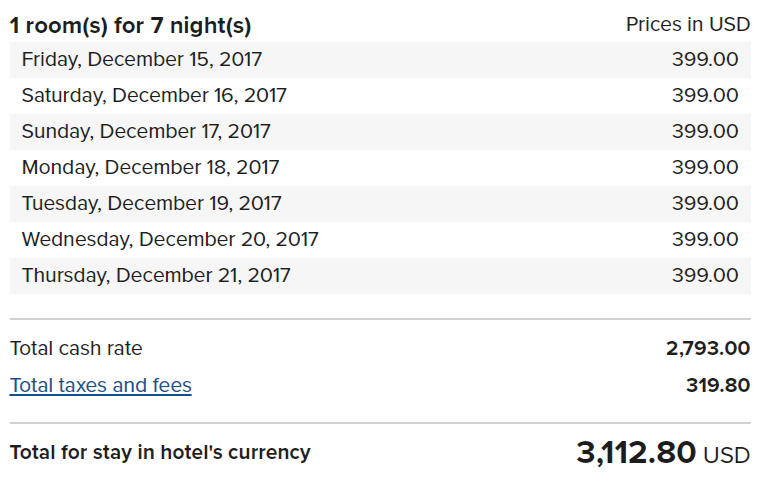


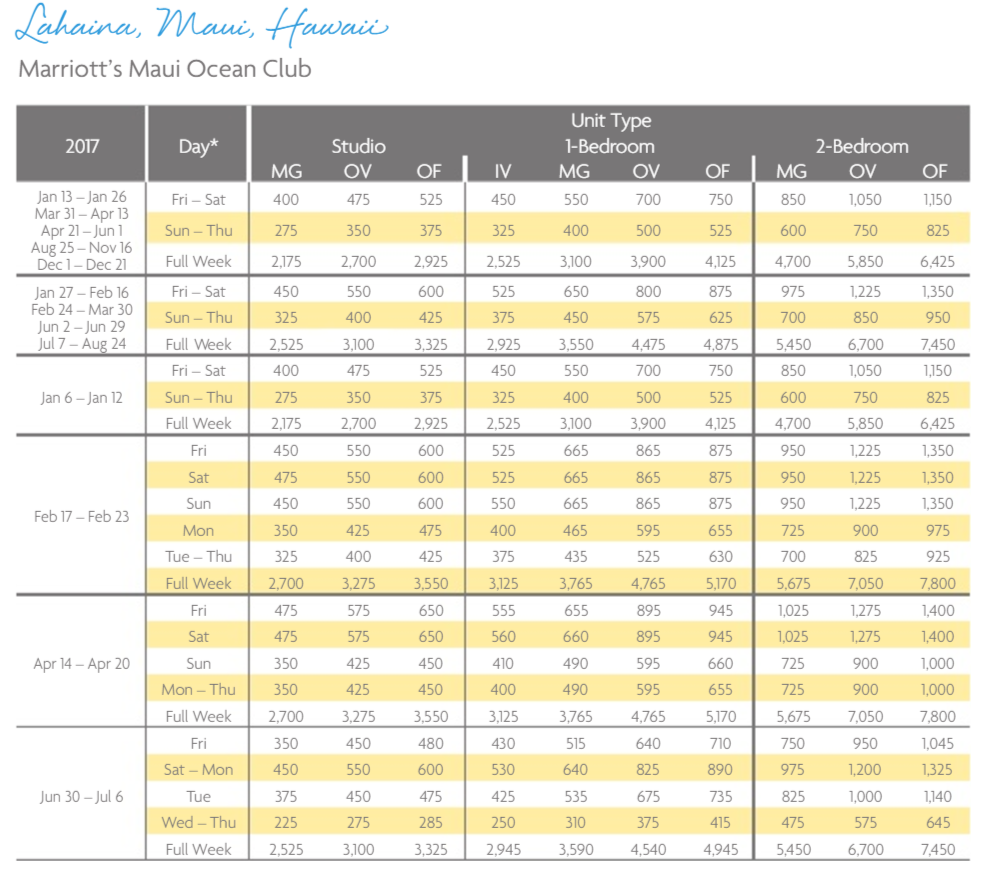
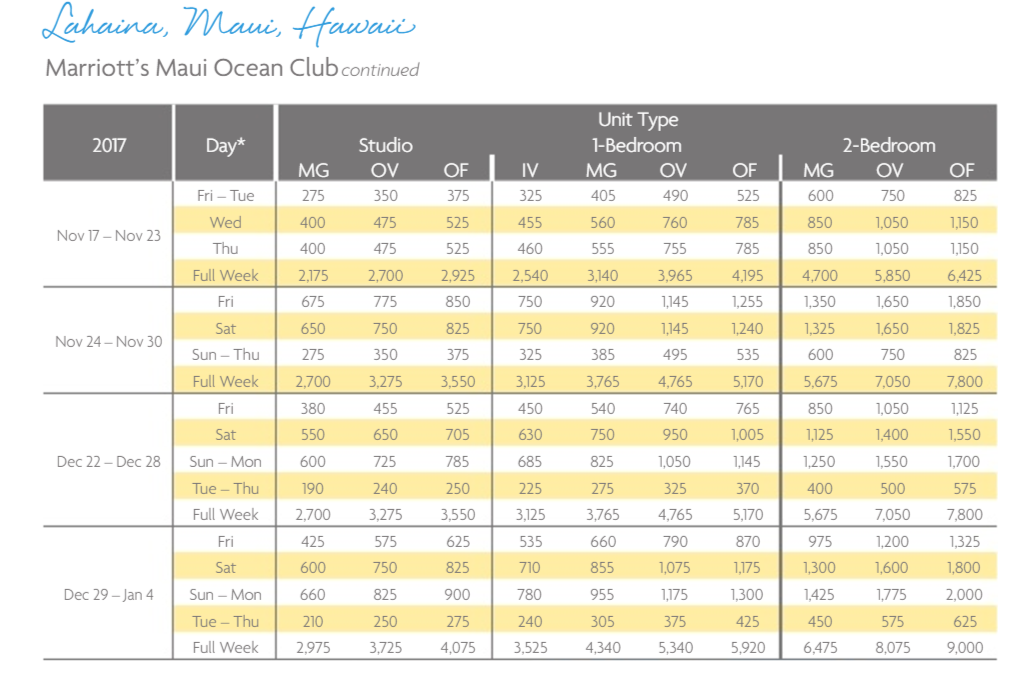







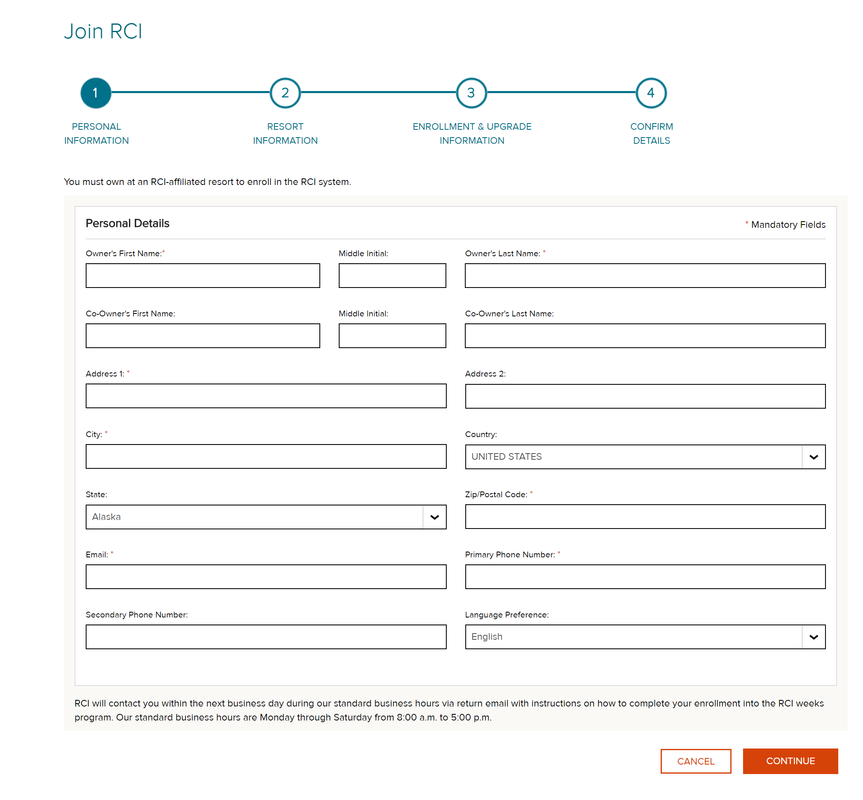
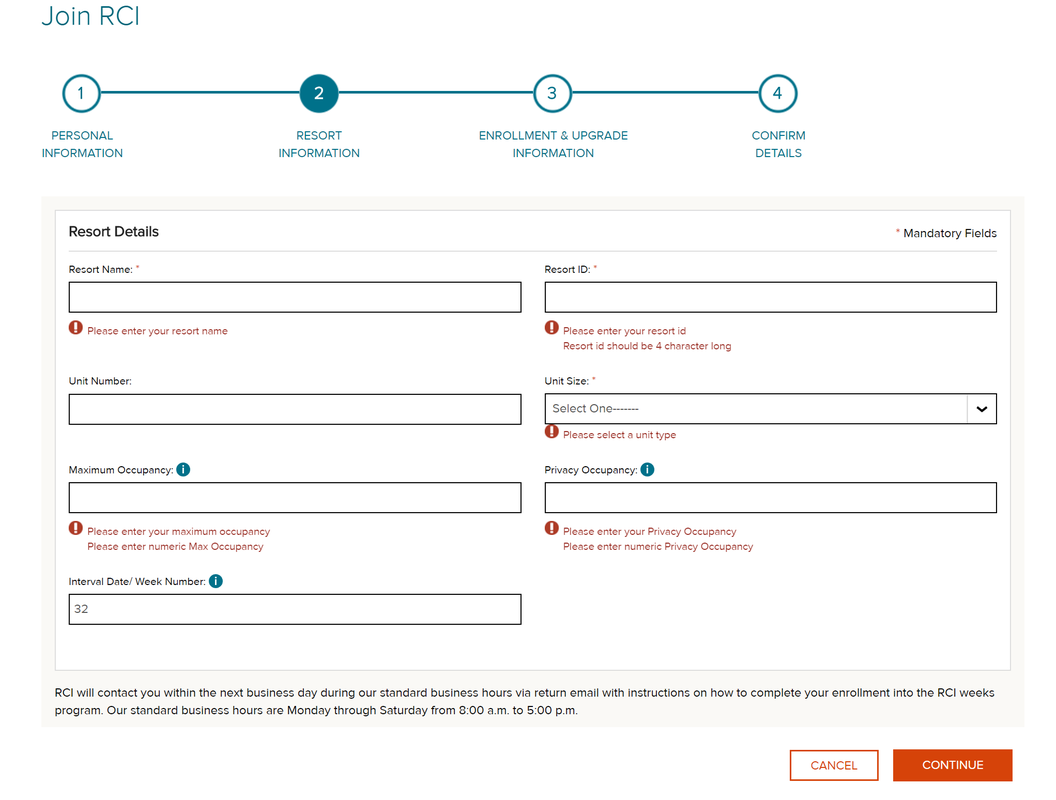
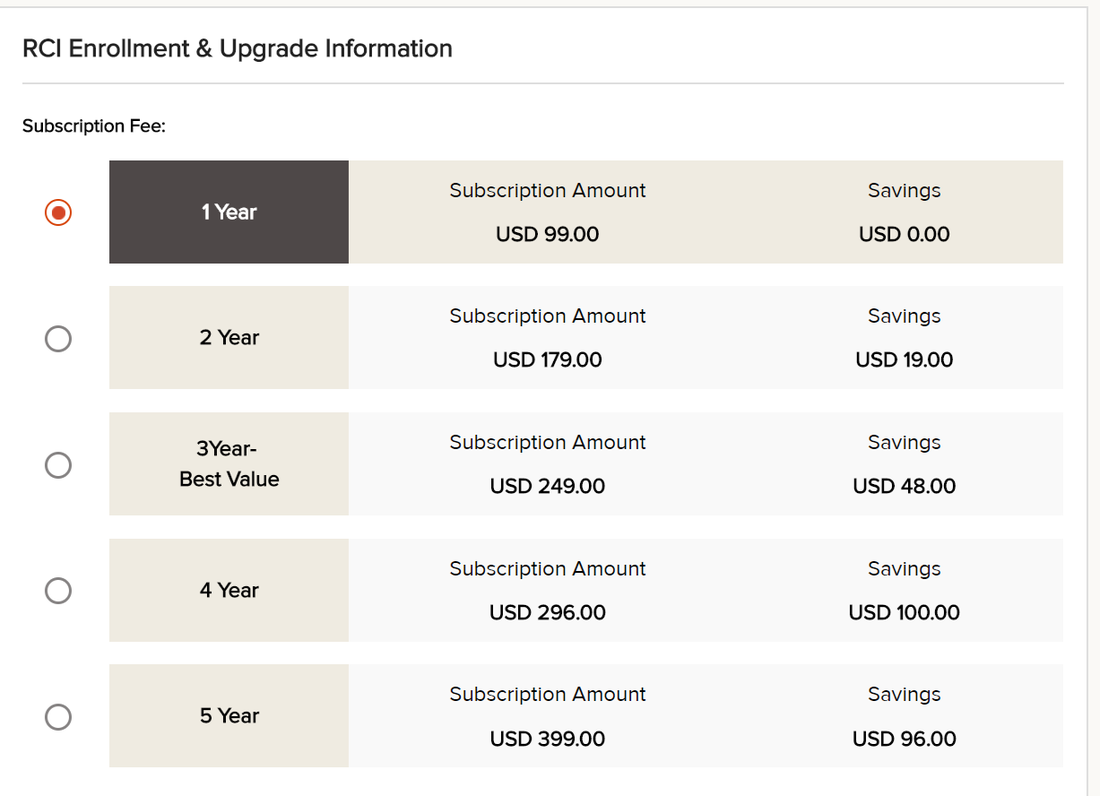
 RSS Feed
RSS Feed
